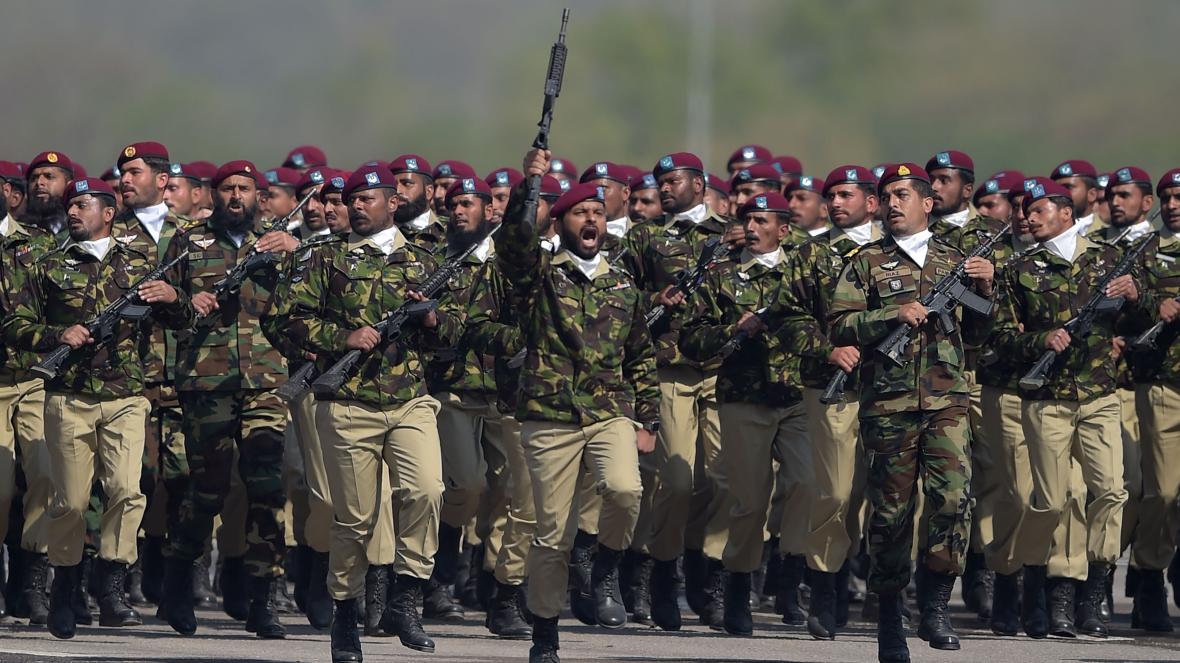
Pakistan Opposition Parties Accuse Military of Rigging 2018 Elections to Favour Imran Khan
Manas Dasgupta
NEW DELHI, Oct 11: On the eve of the combined opposition rally in their renewed bid to oust the Pakistan prime minister Imran Khan from power, some opposition leaders have for the first time openly accused the country’s military of committing “treason” by “interfering in the political affairs” during the 2018 Parliamentary elections.
Calling Khan a “selected” prime minister rather than being elected by the people, these opposition leaders claimed that Pakistan’s powerful military massively rigged the 2018 elections to bring Khan’s “Tehreek-e-Insaaf” party to power, and not because his party was voted to power by the people.
After the Pakistan Muslim League-Nawaz (PML-N) chief and the former three-time prime minister Nawaz Sharif fired the first salvo against the army, the Pakistan People’s Party (PPP) chief Bilawal Bhutto Zardari joined in accusing the military and threatening to “seize” Islamabad if the army repeated its interference in the next month’s “elections” to the Gilgil-Baltistan provincial assembly in Pakistan-Occupied Kashmir.
Levelling serious charges against the army is not anything unique in the history of Pakistan but in the past the political leaders had only indirectly pointed to the involvement of the military establishment in the country’s political affairs but this is the first time that the leaders of the two main Opposition parties have openly criticised the military.
On September 20, the leaders of 11 major Opposition parties formed the Pakistan Democratic Movement (PDM) to launch a three-phased anti-government movement under an “action plan” starting with countrywide public meetings, protest demonstrations and rallies before a “decisive long march” towards Islamabad in January, 2021.
The Opposition parties will hold their first combined rally against the Imran Khan-led government on October 16 in Gujranwala city in Punjab province, demanding to oust the “selected” prime minister’s resignation and an end to the role of the powerful military in the country’s politics.
Sharif, who is recuperating in London since November last year and facing a number of corruption cases, fired the first salvo at the inaugural meeting of the PDM alleging that the military rigged the 2018 elections to bring Prime Minister Khan to power. He said interfering in politics in uniform amounts to “treason” under Pakistan’s Constitution.
After Sharif, PPP chairman Zardari accused the military of rigging the 2018 elections and warned that any interference in the coming legislative assembly elections in Gilgit-Baltistan would lead to a strong reaction from his party, including a siege of Islamabad and a sit-in in the city.
“Such things were never witnessed even in dictatorships of General Zia and Gen Musharraf,” Bilawal was quoted as saying by the Pakistani media. “I wonder how you deploy a soldier inside and another outside the polling station. That was so strange. Even if you (military establishment) have done something wrong or not, you would be blamed either way. This should not happen,” he said and added that the “PPP would not allow anyone to steal the peoples mandate in the coming elections in Gilgit-Baltistan.”
The opposition criticism sparked off an angry response from the prime minister who said Sharif was “playing a very dangerous game” by humiliating the military and intelligence services. He dismissed the opposition allegations of rigged elections as “baseless.” Khan also said the Opposition’s real issue with the military was that they remained unable to control the Inter-Services Intelligence (ISI) unlike other institutions after the agency found out about their corruption.
Sharif served as Pakistan’s prime minister three times, first removed by a president in 1993, then by military ruler Pervez Musharraf in 1999. A court in 2017 ousted him from power over corruption allegations. Khan, a former cricketer who had led Pakistan to grab Cricket world cup in 1992, came to power in 2018.
Pakistan has announced that the once-postponed election for the legislative assembly of Gilgit-Baltistan will be held on November 15, amidst India’s strong objection to Islamabad’s move to alter the status of the militarily-occupied region.
India also clearly conveyed to Pakistan that the entire Union territories of Jammu and Kashmir and Ladakh, including the areas of Gilgit and Baltistan, are an integral part of India. Pakistan’s military top brasses have in recent times advised political parties to stop dragging them into politics and making baseless accusations against them.
The Opposition leaders had announced that they would use all political and democratic options, including no-confidence motions and mass resignations from Parliament, to seek “the selected prime minister’s resignation and an end to the role of the establishment in politics. Several opposition leaders in Pakistan had started the anti-Khan movement last year but outbreak of Corona pandemic virtually halted all measures since the beginning of the current year.
Pakistan, meanwhile, battling on another front with the threat of being black-listed by the Financial Action Task Force (FATF) for supporting terror is reported to have hired some top lobbyist firm in view of the upcoming October 21-23 meetings of its plenary and sub-groups. The firm on the Capitol Hill will be trying to push a narrative favouring Islamabad with Trump administration and get bailed out of the club of nations on the “grey list.”
With all-weather friend and iron brother China, Ottoman empire revivalist Turkey and increasingly radicalised Malaysia behind Pakistan, there is no possibility of Islamabad getting pushed into FATF’s black list as only three out of 39 member states are required to block the proposal. Islamabad, however, requires support of at least 12 out of 39 member states to remove its name from the grey list and this will largely depend on the approach the US will take at the Paris plenary.
















